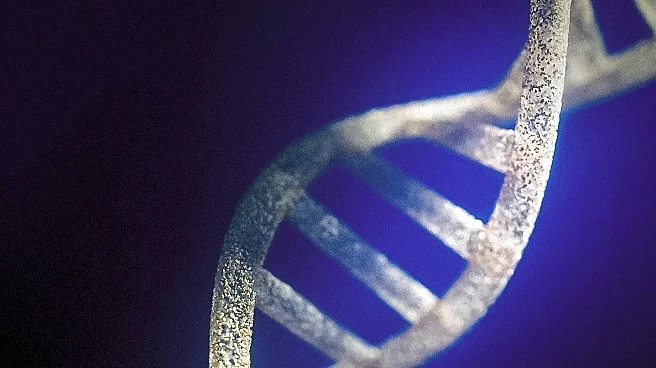What's Happening?
Stealth BioTherapeutics has received FDA approval for its drug elamipretide, now branded as Forzinity, under the accelerated approval pathway. This marks the first FDA-approved treatment targeting mitochondria for Barth syndrome, a rare pediatric mitochondrial disease affecting approximately 150 individuals in the U.S., predominantly males. The approval is limited to patients weighing at least 66 pounds, excluding younger children who are often more severely affected. Stealth's CEO, Reenie McCarthy, hailed the approval as a pivotal victory for the Barth syndrome community, emphasizing the potential for expedited regulatory attention to other ultra-rare diseases. The approval follows a resubmission process initiated in August after an initial rejection in May, with the FDA providing guidance for accelerated approval.
Why It's Important?
The approval of Forzinity is significant for the Barth syndrome community, offering a new treatment option for a disease with no previously approved therapies. This development may pave the way for faster regulatory processes for other ultra-rare diseases, potentially benefiting small patient populations with limited treatment options. The approval also has implications for Stealth BioTherapeutics, as failure to secure FDA approval could have jeopardized the company's future, according to stakeholders. The decision reflects the FDA's evolving approach to rare disease drug approvals, aligning with recent efforts to streamline processes for ultra-rare conditions.
What's Next?
Stealth BioTherapeutics plans to continue providing expanded access to Forzinity for children weighing less than 66 pounds while working with the FDA to gather data necessary to expand the drug's indication to include younger patients. The company will likely focus on generating additional clinical data to support broader use of the drug. The Barth syndrome community and Stealth will monitor the drug's impact on patients and advocate for further regulatory adjustments to accommodate younger children. The FDA's decision may influence future policy discussions on rare disease drug approvals.
Beyond the Headlines
The approval of Forzinity highlights ethical considerations in drug development for rare diseases, particularly regarding access for severely affected younger patients. The case underscores the challenges faced by pharmaceutical companies in balancing clinical trial requirements with the urgent needs of small patient populations. The FDA's decision may prompt discussions on how to best support drug development for ultra-rare diseases, potentially leading to policy shifts that prioritize patient access and innovative trial designs.










